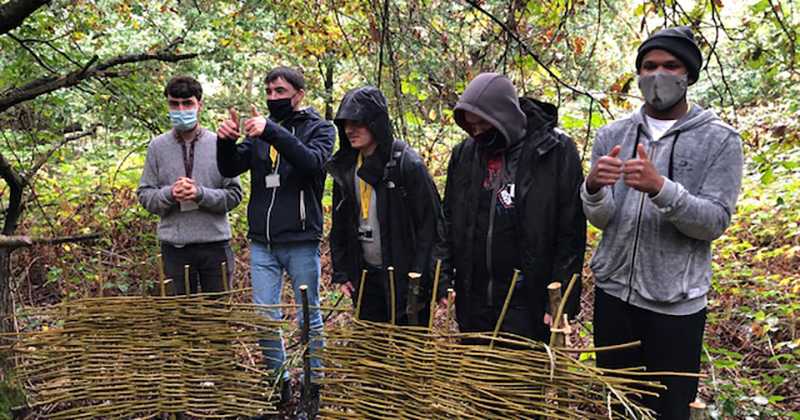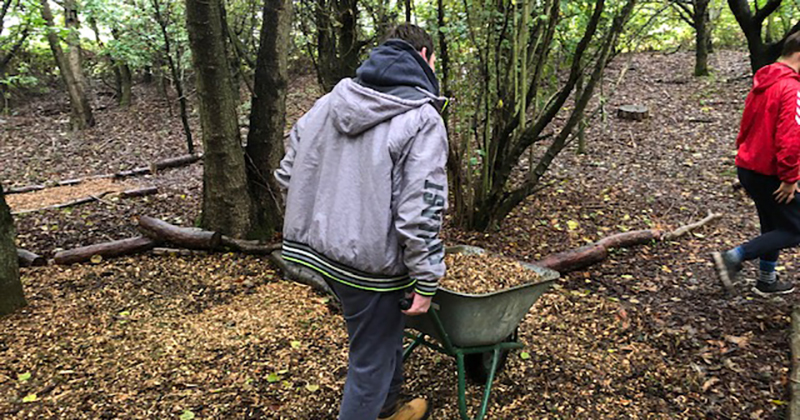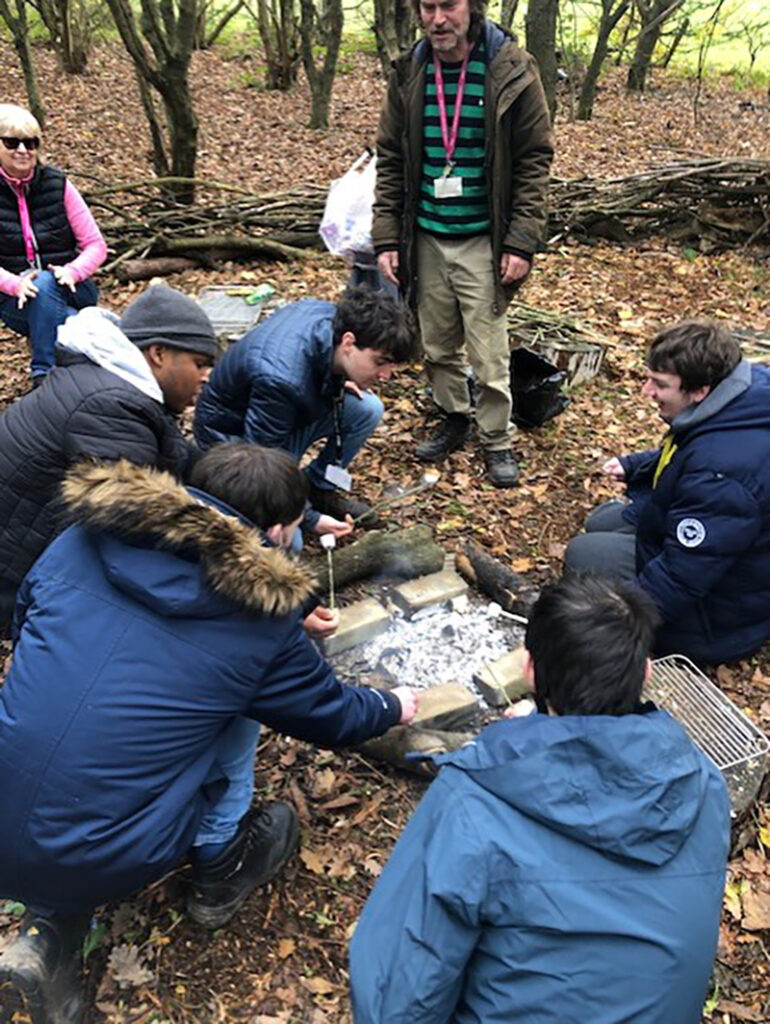Time outdoors develops confidence and communication in learners, writes James Plant
The concept of forest schools has grown in popularity over the past two decades. The idea of supporting children to experience the natural environment, while building their confidence and independence, has been hugely successful.
It became clear to me that the same principles would apply to the young adults I teach, who have a variety of moderate to complex learning needs.
Many of our 16-to-24-year-olds do not have any experience of the “great outdoors”, despite our borough having some of the greenest spaces in London.

This is often due to the physical challenges that many of our learners face – from restricted mobility to visual impairment. Parents and carers can also hesitate to venture into woodland, unaware of the many benefits that can come with the outdoors.
This problem is exacerbated by the unfortunate trend among young people of feeling removed from the natural environment.
There is an unfortunate trend of young people feeling removed from the natural environment
The government’s latest Monitor of Engagement with the Natural Environment report shows this age group are least likely to report being near to green spaces and least likely to visit the outdoors for health or exercise.
That’s despite the report finding that 97 per cent of visitors to the natural environment stating afterwards that they had “enjoyed it”, with 88 per cent saying it had made them “feel calm and relaxed”.
I am also an accredited advanced forest school leader and keen student of traditional woodland crafts. So I wanted to give my students access to this very different way of learning.
In 2018 I identified a wooded area on the edge of our college playing field. It was inaccessible due to dense undergrowth – but clearly had huge potential. I was supported by the college’s senior leadership team and provided with a budget for tools. Fortunately, local tree surgeons were willing to supply woodchip and logs free of charge.
Many students chose to get involved, clearing the area and restoring the woodland to its natural habitat.

Thanks to their hard work, a nature trail is now in place. This includes a small open-air theatre, an outdoor classroom and views across a fishing lake.
The forest school sessions include outdoor cookery, making hot chocolate, wildlife watching and woodcraft. It’s not just about taking a normal lesson and teaching it outdoors.
The forest school concept turns education on its head by letting the learners lead and developing their own risk-management skills.
We also incorporate an employability focus via our woodland management and sustainability programme.
This gives students the opportunity to play a key role in our college’s sustainability agenda and improving biodiversity in the area – as well as developing their communication and life skills.
The scope for learning is huge: learners build and maintain the wheelchair-accessible nature trail, and create recycled products out of wood to sell in the college shop. These experiences are equipping our students with the confidence they need to help them take their next steps.
Meanwhile, students’ dedication to the project has been incredible. From suggesting what could be done, to physically getting involved in the legwork, everyone involved has developed a sense of pride.

The natural environment is special because it empowers students to be in control of their actions and decisions. This has positively impacted engagement both in and outside of the sessions and has opened our students’ eyes to their own abilities.
Crucially, this is a sustainable initiative that other colleges can replicate.
FE organisations are deep-rooted within their communities and are likely to have existing links with green partners and employers to create a similar project with minimal cost and maximum benefit.
This project is enabling our talented SEND learners to not only play a part in the sustainability and environmental agenda, but to lead on it.
I would love to see other colleges doing the same.












Your thoughts